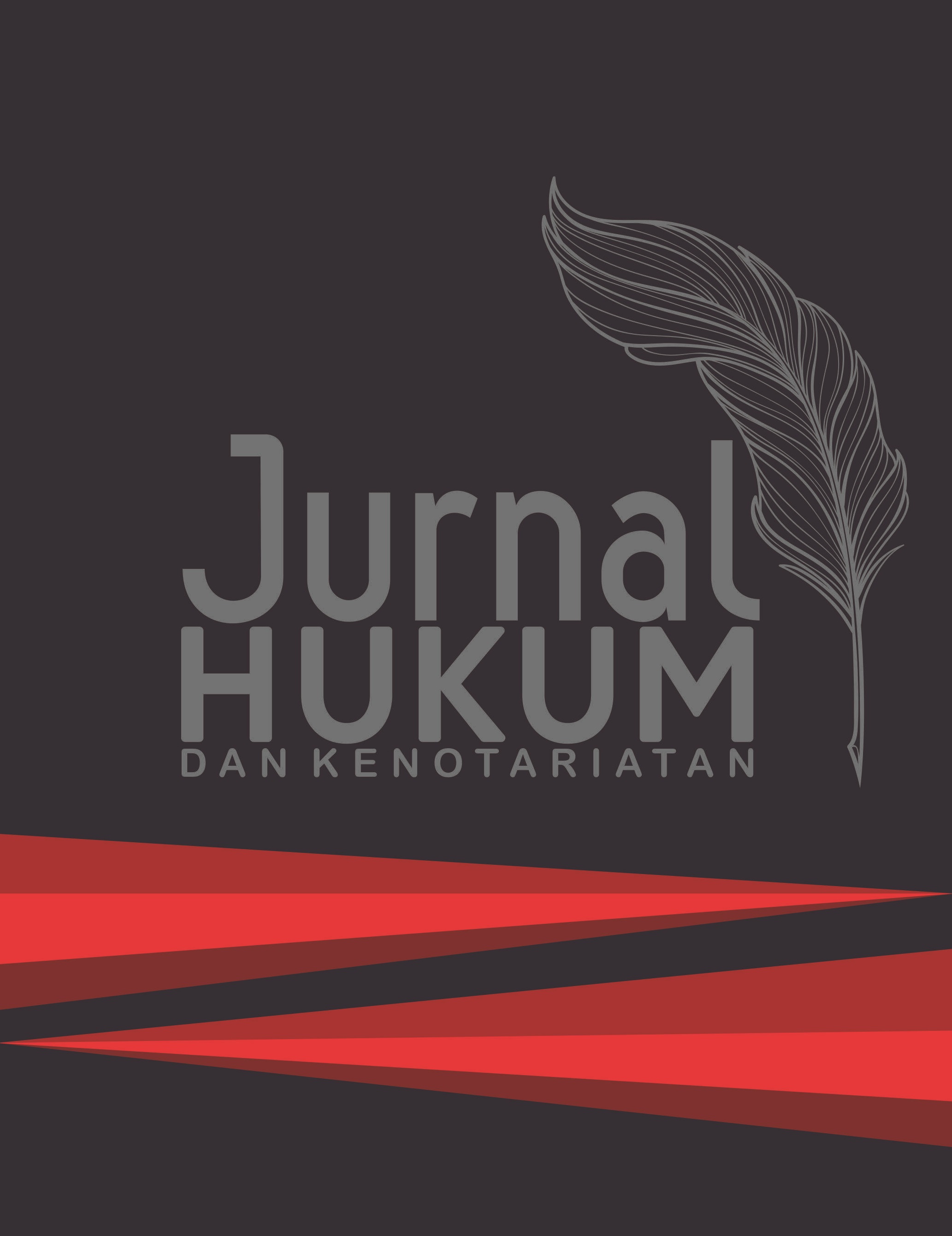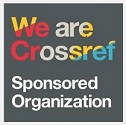CREATIVE COMMONS LICENSE SEBAGAI HAK CIPTA INTERNASIONAL DITINJAU BERDASARKAN ASPEK HUKUM INDONESIA
DOI:
https://doi.org/10.33474/hukeno.v5i2.10186Abstract
Â
Perkembangan teknologi khususnya internet telah mempermudah masyarakat untuk mengakses dan mendistribusikan informasi. Namun, kegiatan seperti copy-cut-paste (menyalin-memotong-menempel), menyunting (editing) ataupun berbagi dokumen (file sharing) justru menimbulkan hal kontradiktif terhadap hukum hak cipta. Berdasarkan hal tersebut tahun 2002 sebuah organisasi nirlaba membuat inovasi dan terobosan yang memungkinkan berbagi dan menggunakan kreativitas dan pengetahuan melalui alat hukum gratis. Metode penelitian yang digunakan dalam tulisan ini adalah metode penelitian yuridis normatif dengan fokus pada pendekatan perundang-undangan dan analisis konten. Berdasarkan analisis pembahasan creative commons bukanlah alternatif dari hukum hak cipta, melainkan bekerja berdampingan dan mampu membuat pencipta/pemegang hak cipta memodifikasi haknya ke dalam keadaan yang paling sesuai dengan kebutuhan. Lisensi creative commons di Indonesia penggunaannya dimungkinkan menurut Pasal 9 ayat (1) Undang-Undang Nomor 28 Tahun 2014 tentang Hak Cipta. Lalu pemegang hak berdasarkan Pasal 81 UU Hak Cipta, dapat mengumumkan dan/atau berhak memberikan lisensi kepada pihak lain berdasarkan perjanjian lisensi untuk melaksanakan perbuatan sebagaimana dimaksud dalam Pasal 9 ayat (1), memperbanyak ciptaannya/produk hak terkaitnya dengan persyaratan tertentu. Selanjutnya berdasarkan Undang-Undang Nomor 11 Tahun 2008 tentang Informasi dan Transaksi Elektronik Pasal 1 ayat (5), kegiatan yang dilaksanakan oleh creative commons adalah kegiatan penyelenggaran sistem elektronik.
Kata Kunci: Creative Commons; Hak Cipta; Lisensi.
Â
The development of technology, especially the internet, has made it easier for people to access and distribute information. However, activities such as copy-cut-paste, editing or file sharing may actually harm the copyright law. Based on that, in 2002, a non-profit organization made a breakthrough innovation where it is possible to share and use creativity and knowledge through free legal tools. The research method used in this paper is a normative juridical research method with a focus on the statutory approach and content analysis. Based on the analysis of the discussion, creative commons is not an alternative to copyright law, but rather work side by side and is able to make the creator/copyright holder to modify their rights in the most appropriate circumstances. The use of creative commons licenses in Indonesia is possible according to Article 9 paragraph (1) of Law Number 28 of 2014 concerning Copyright. Furthermore, the rights holder, based on Article 81 of the Copyright Law, able to announce and/or has the right to grant license to other parties based on the license agreement to carry out the action referred to in Article 9 paragraph (1), reproduce their rightful works/products with certain conditions. Furthermore, based on Law Number 11 of 2008 concerning Electronic Information and Transactions Article 1 paragraph (5), the activities carried out by the creative commons are the activities of organizing an electronic system.
Keywords: Creative Commons; Copyright; License.
References
Buku
Guibault, Lucie dan Angelopoulos, Christina, Ed., 2011, Open Content Licensing: from Theory to Practice, Amsterdam: Amsterdam University Press.
______________ , 2004, Budaya Bebas: Bagaimana Media Besar Memakai Teknologi dan Hukum untuk Membatasi Budaya dan Mengontrol Kreativitas, Yogyakarta: KUNCI Cultural Studies Center.
Lessig, Lawrence, 2001, The Future of Ideas, New York: Random House.
Makarim, Edmon, 2004, Kompilasi Hukum Telematika, Jakarta: P.T. Raja Grafindo Persada.
Natanel, Neil Weinstock, 2008, Copyright’s Paradox, New York: Oxford University Press.
Ramli, M. Ahmad, 2006, Cyber Law dan HAKI Dalam Sistem Hukum Indonesia, Bandung: PT Refika Aditama.
Shapiro, Carl dan Varian, Han Ronald, 1999, A Strategic Guide to the Network Economy, Boston: Harvard Business School Press.
Soekanto, Soerjono, 2006, Penelitian Hukum Normatif, Jakarta: Rajawali Pers.
Wijaya, Gunawan, 2011, Lisensi (Seri Hukum Bisnis), Jakarta: Raja Grafindo Persada.
Jurnal
Kilanta, Devega R., "Penegakan Hukum terhadap Hak Cipta Berdasarkan Undang-Undang Nomor 28 Tahun 2014 tentang Hak Cipta." Lex Crimen, Volume 6 Nomor 3 Tahun 2017
Raharjo, Riko Sulung, M. Khoidin, and Ermansyah, Fahamsyah. "Perlindungan Hukum terhadap Pencipta atas Pencatatan Suatu Ciptaan yang Sama." Jurnal Lentera Hukum, Volume 5 Nomor 3 Tahun 2018, h. 437-456.
Rusdiansyah, "Membangun Prototype Sistem Informasi Arsip Elektronik Surat Perjanjian Kerjasama Pada Business Support Departement." Jurnal Pilar Nusa Mandiri Volume 14 Nomor 2, Tahun 2018, h. 157-162
Sulistianingsih, Dewi dan Prabowo, Muhammad Shidqon, "Problematik Dan Karakteristik Penyelesaian Sengketa Kekayaan Intelektual Melalui Badan Arbitrase Nasional Indonesia." QISTIE: Jurnal Ilmu Hukum, Volume 12 Nomor 2, Tahun 2019, h. 166-177
Makalah
Gunawan, Aditia, “Creative Commons: Penerapannya di Indonesiaâ€, Konferensi Perpustakaan Digital Indonesia, Jakarta, Makalah 2013
Putro, Kusuma Prasetyo, “Creative Commons Lisence sebagai Alternatif Perlindungan Karya Cipta Musik di Era Digitalâ€. Makalah.
Internet
Crosby, Alexandra dan Thajib, Ferdiansyah, “A Culture of Sharing,†Inside Indonesia, September 2011, http://www.insideindonesia.org/weeklyarticles/a-culture-of-sharing
http://creativecommons.org/about
https://creativecommons.org/licenses/by-nc-sa/4.0/legalcode.id
http://creativecommons.or.id/2011/10/apakah-creative-commons-itu-dan-apa-kegiatannya/
Lessig, Lawrence CC in Review: Lawrence Lessig on Supporting the Commons http//creativecommons.org/weblog/entry/5561
“Some Rights Reservedâ€: Building a Layer Reasonable Copyright http//creativecommons.org/History
The European Parliament and of the Council of 8 June 2000 on Certain Legal Aspects of information society service, in particular electronic commerce, in the internal market, http://www.tourimlaw.eu/documents/tourism_legislation/EU_8june2000_uk.pdf,
Downloads
Published
Issue
Section
License
Jurnal Hukum dan Kenotariatan issued by the Postgraduate Notary Masters Program at the Universitas Islam Malang apply the Copyright and License provisions under Lisensi Creative Commons Atribusi 4.0 Internasional.



.png)














